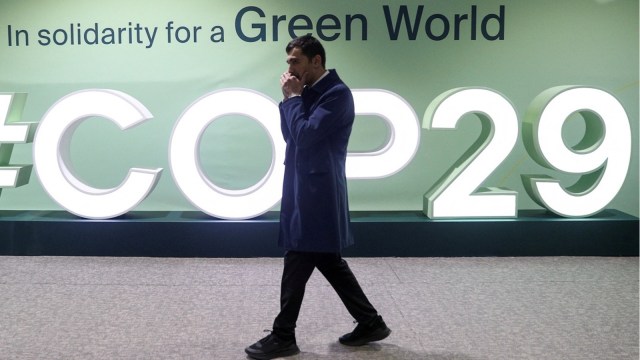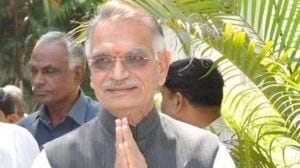Disarray at COP29 as developing countries walk out, reject climate finance rough draft
The groups of small island states and least developed countries said this in no way reflected their needs and decided to walk out of the meeting. More backroom negotiations were called for. The talks, scheduled to end on Friday, is headed into Sunday.
 All the developing countries insisted that they were not leaving the process and still wanted to engage with the developed nations to reach an agreement.
All the developing countries insisted that they were not leaving the process and still wanted to engage with the developed nations to reach an agreement.
The two-week COP29 climate talks here were in complete disarray on Saturday, with the small developing countries walking out of a meeting, saying they had been “insulted” and their demands on climate finance completely ignored.
The developed countries initially offered to provide $250 billion every year, which was rejected by the developing States who have been asking for at least $1 trillion a year. After consultations through Friday night and Saturday morning, the offer was increased to $300 billion.
The groups of small island states and least developed countries said this in no way reflected their needs and decided to walk out of the meeting. More backroom negotiations were called for. The talks, scheduled to end on Friday, is headed into Sunday.
“We have presently removed ourselves from the stalled NCQG (New Cumulative Quantified Goal on Climate Finance, the formal name for finance negotiations), discussions, which were not offering a progressive way forward. We want nothing more than to continue to engage, but the process must be inclusive. If this cannot be the case, it becomes very difficult for us to continue our involvement here at COP29,” Cedric Schuster, chairperson of the Association of Small Island States (AOSIS), said.
“Small island developing states and Least Developing Countries (LDC) are among the very worst impacted by this climate crisis that we did not cause. Yet we have found ourselves continuously insulted by the lack of inclusion, our calls are being ignored. We need to be shown the regard which our dire circumstances necessitate,” he said.
The African group of countries also rejected the offer.
“We are prepared to reach agreement here in Baku, and indeed we must reach an ambitious agreement in all respects, but we are not prepared to accept things that cross our red lines,” Kenya’s Special Climate Envoy Ali Mohamed said.
COP29 is expected to deliver a finance agreement to generate higher amounts of climate finance to enable more ambitious climate action. As of now, developed countries are under an obligation to raise 100 billion dollars per year to help developing nations fight climate change.
All the developing countries insisted that they were not leaving the process and still wanted to engage with the developed nations to reach an agreement.
“The Alliance of Small Island States remains committed to this process and are here in the spirit of good faith in multilateralism to secure the best deal that will protect not just us, but the world from the worst impacts of climate change,” Schuster said.







